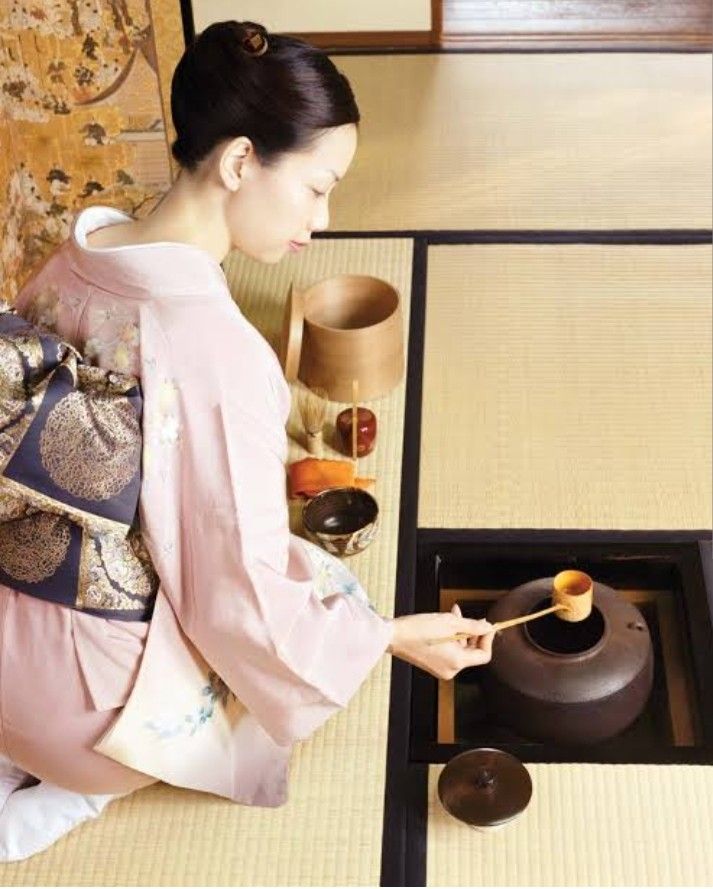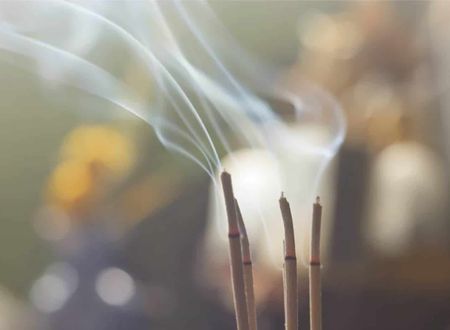“A jar that had been Mrs. Ota’s was now being used by Chikako. After Mrs. Ota’s death, it had passed to her daughter and from Fumiko it had come to Kikuji. It had had a strange career. But perhaps the strangeness was natural to tea vessels. In the three or four hundred years before it became the property of Mrs. Ota, it had passed through the hands of people with what strange careers?”
“Chikako was gazing at the jar. ” You can’t bring a water jar to life unless you use it for tea. It’s a great waste cramming foreign flowers in it. “
“It was a straight forward performance, quite without personal quirks. Her bearing from shoulders to knees, suggested breeding and refinement. The shadow of young leaves fell on the paper paneled door. The light was really too bright for a tea cottage but it made the girl’s youth glow. The tea napkin as became a young girl was red, and it impressed one less with its softness than with its freshness as if the girl’s hand were bringing a red flower to bloom. “
“And one saw a thousand cranes, small and white, start up in flight around her. “
“The tea bowls, three or four hundred years old, were sound and healthy and they called up no morbid thoughts. Life seemed to stretch taut over them, however in a way that was almost sensual. “
“Seeing his father and Fumiko’s mother in the bowls, Kikuji felt they had raised two beautiful ghosts and placed them side by side.”
-Thousand Cranes (1958)
Yasunari Kawabata – One of my few favorite Japanese novelists who made their presence felt through their words. Winner of the Nobel Prize for Literature in 1968. He committed suicide in 1972.
“The crane is a mystical or holy creature (others include the dragon and the tortoise) in Japan and is said to live for a thousand years. That is why one thousand origami cranes († senbazuru; literally “one thousand cranes”) are made, one for each year. In some stories, it is believed that the cranes must be completed within one year and they must all be made by the person (or group of people) who will make the wish at the end.”- Wikipedia









Comments & Discussion
0 COMMENTS
Please login to read members' comments and participate in the discussion.